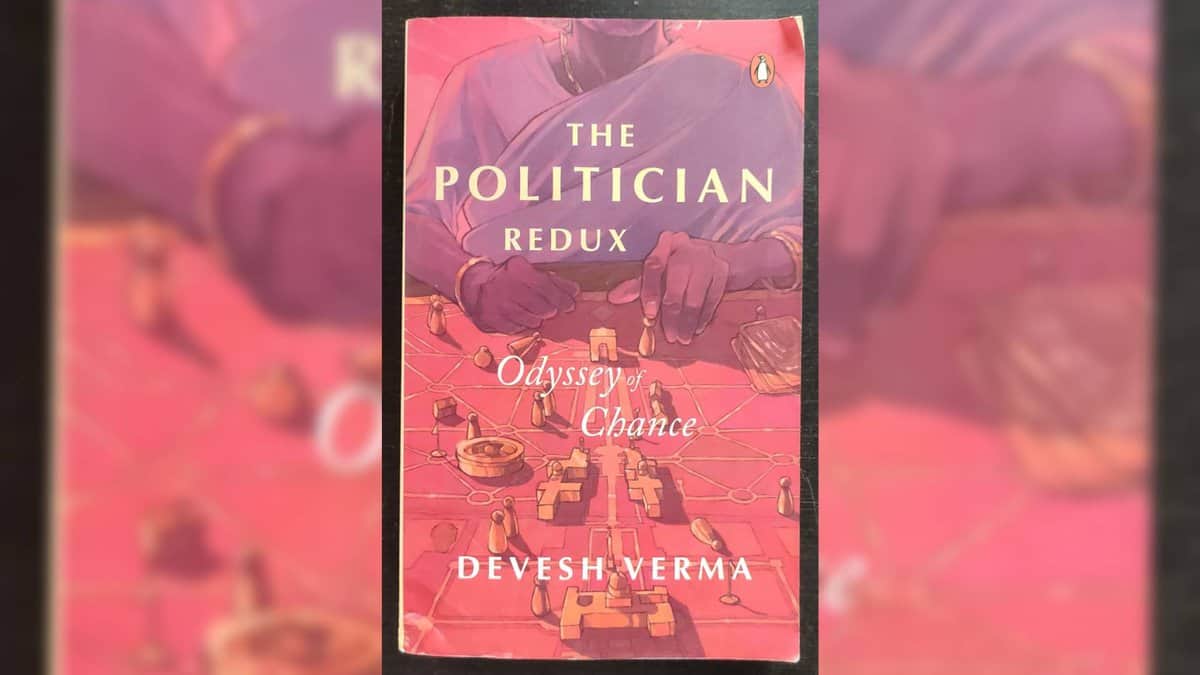
In the ever-growing dystopian world of deceit, lying, and corruption, novels poignantly portray politics that seem to be squinted towards organised hypocrisy. Curiously, people yearn to know everything that simultaneously conjures awe and disdain, which is what politics produces. It precisely articulates the unprecedented popularity of non-fiction books and political novels.
The political novel, modelled on historical and social fiction, creates a masterful evocation of the grim and traumatic political landscape that jeopardises human rights and diminishes faith in the system. It reflects not just on political hypocrisy and human ambition, but also on India’s tumultuous history. This exploration, not just the projection of political ideas or the politicisation of literature, is what truly defines a political novel. It is not very reassuring to learn that the political novels churned out frequently in India often produce narratives in which political ideas, rivalries, jealousies, unbridled ambition, and events take centre stage. Seldom does any political novel locate consequential movement, events with far-reaching consequences, in the tantalising fluctuations of human failings and triumphs. The inimitable creative depiction of the collective will unravels how characters become subservient to power and how politics crushes human aspirations and dignity in multiple ways. It unmasks the delusions and sinister purposes of political ambition, transforming the burning questions of political life into moral intrigue with an imaginative insight into the elemental human predicament.
Ethical dilemmas
How can political questions become ethical dilemmas, and how can chaotic and intimate political activism be put into a dazzling frame of keen wit and deep pathos?
Devesh Verma, in his pulsating novel, The Politician Redux: Odyssey of Chance, provides creative and subtle answers to these questions. This sequential evocation of his critically acclaimed book, The Politician, is a testament to his unique narrative style and his ability to tackle complex political themes.
The story of the protagonist, Ram Mohan—a morally and ideologically unglued academician turned politician, is told through the prism of his son Deena, the black sheep of the family who ‘lives in the fantasy world of movies and storybooks’. Fashioning a gripping narrative of Ram Mohan and his family, set in the ‘most tempestuous times in India’—the 1970s to 1980s, the novel elegantly unwinds the ruthless pursuit of self-interest, a deliberate disordering of priorities and the dark and despicable undersides of our political, social and cultural tradition. It draws attention to the invisible yet immanent path our political system follows and how it manifests. It is daunting to tell a multilayered story through the thinly disguised characters drawn from a middle-class family headed by an avowed patriarch of his time, Ram Mohan, who is essentially a man of consequence.
India’s unrest
In the mid-seventies, India was rocked by issues such as widespread unrest in Gujarat, the JP Movement, the imposition of Emergency, the defeat of Indira Gandhi, Operation Blue Star, the assassination of Indira Gandhi, the spurt in caste policies and the emergence of Kanshi Ram, and the bloodstained agitation for reservation. They created an air of unease, desperation, moral outrage, and reprobation. It appears that Devesh Verma believes these questions elicited inadequate responses from creative writers. It echoes the remark of the noted fiction writer Intezar Hussain, who regretted that the writers of the Indian subcontinent hardly made 1857 and the Partition pièce de résistance. He attempted to document the volatile socio-political scenario of Uttar Pradesh, which revolves around complex caste equations, by showcasing the evocative personas of Ram Mohan, his wife Kanti, daughters Nisha and Sandhya, and sons Mayank, Deena, and son-in-law Shekhar, all consumed by their longings and self-deception. Ingeniously, the novel is dotted with suggestive elements and meta-narrative quickness in characterisation. At the outset, a conversation centres on the person of the hour, Ram Mohan, who lacks both social and economic means to fulfil his aspirations. What he does have, though, is no less critical. He has a mighty drive and a positive outlook, so positive it verges on the pathological. He cannot be without some goal to achieve or some problem to solve. He succeeds through guile, and he can employ violence if warranted. The skillfully rounded narrative, spanning over 300 pages, unfolds the vicissitudes of the protagonist’s life with imaginative courage; an interrogative spirit rooted in the corruption of politics and the politics of corruption. Political novels necessarily draw comparisons, and so does The Politician Redux. Before the assessment of Nehru and Indira rule, when ‘the country was romancing with socialism, there were no rules that those with influence could not refer to the much-hyped JP Movement of that time: ‘And nobody can foretell the outcome of the ongoing volatility. Even JP, who is so enamoured of his rhetoric and blanket statements, has no idea what he wants to accomplish with all this. This way, you can only have one regime supplanted by another. For any systematic change to occur, it requires rigorous engagement with workable ideas and a willingness to undertake a long-drawn-out struggle.
JP, an utterly confused man
Desai thinks JP is an utterly confused man.’ Many familiar figures in UP politics often make thinly disguised appearances. The reader has no difficulty recognising Bahuguna, Charan Singh, Mulayam Singh Yadav, Kanshi Ram, V.P. Singh, and Mayawati. They hardly capture the imagination, and their actions arouse some degree of suspicion.
Intimate and suggestive dialogues enliven the description, but the true meaning of the conversation can only be inferred, as the surface meaning often subverts the intended meaning. The subject appears to be rooted in seeming triviality, but its unfolding reveals shards of internal evidence, making it revelatory on several counts. It is not a titillating anecdotal biography of a hardcore politician. Still, it is an engaging portrayal of a power-hungry Kurmi leader who went on to become a member of the Uttar Pradesh Public Service Commission. Despite being content with the awe-inspiring social status the membership carries, Ram Mohan pinned hope on tergiversation with little success. The most striking feature is Ram Mohan’s meticulous micromanagement of his family on the non-political front. Kartik, who has the making of the novelist’s alter ego, narrates the story, and the turncoat Ram Mohan comes in for scathing criticism. The novel is based on Deena’s diaries and letters. It betrays a static and mannered climate with no possibility of discernible change or the projection of a movement toward a world not yet made. Devesh Verma’s compulsively readable prose, interspersed with inventive narrative devices, gives an authentic and ineffable account of modern politics’ grievances and retribution.
Shafey Kidwai, a bilingual critic and author, is the Director of Sir Syed Academy at Aligarh Muslim University, Aligarh.



